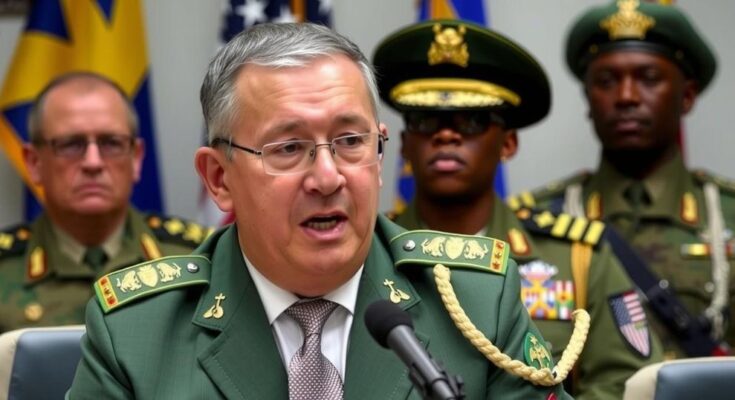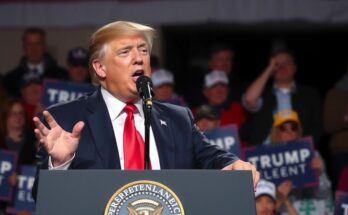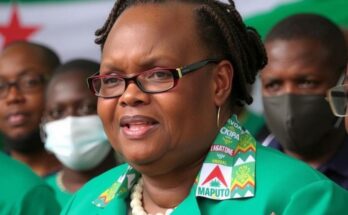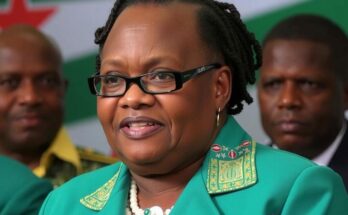Venezuelan President Nicolás Maduro has warned CARICOM of potential dangers stemming from the collaboration between Guyana and the U.S. Southern Command (SOUTHCOM). This warning comes amid rising tensions over disputed territorial claims in the Essequibo region, where Guyana’s oil exploration activities are viewed as provocations by Venezuela. Maduro reaffirms his government’s commitment to defending its historical rights and territorial integrity against perceived threats.
On December 10, 2024, during a broadcast, Venezuelan President Nicolás Maduro issued a warning to the Caribbean Community (CARICOM), urging vigilance against the potential threats posed by the collaboration between Guyana and the U.S. Southern Command (SOUTHCOM). Notably, Maduro expressed concerns following Guyanese President Irfaan Ali’s recent engagement with U.S. military leaders, asserting that such interactions are provocations toward Venezuela and emphasized Venezuela’s readiness to defend its historical territorial claims against any external threats.
The longstanding tensions between Venezuela and Guyana have escalated due to oil exploration activities led by Guyana, particularly in the disputed Essequibo region, where ExxonMobil continues to extract significant oil quantities. Maduro reiterated Venezuela’s claim to the Essequibo territory during a referendum held in December 2023, which Guyana interpreted as an act of aggression toward its sovereignty. Despite a recent commitment to peaceful dialogue under the “Argyle Declaration,” Maduro remains skeptical of the sincerity of ongoing negotiations, particularly in light of Guyana’s ties to U.S. military forces and oil interests.
President Ali has actively sought closer military relationships, welcoming foreign warships and receiving promises of advanced military equipment from the United States. The engagement between Ali and U.S. Navy Admiral Alvin Holsey, the new commander of SOUTHCOM, raised alarms for Maduro, who suggested that these alliances threaten Venezuela’s territorial integrity and could lead to aggression against his nation. Maduro articulated the deep historical significance of defending Venezuela’s sovereignty and declared readiness to respond should U.S. imperialist actions escalate.
Moreover, Maduro’s remarks regarding potential attacks were intensified by regional political shifts, reflecting his commitment to preserving the legacy of military victories against colonial forces. Overall, the meeting between Guyana and SOUTHCOM represents a complicated intersection of military alliances and territorial disputes, highlighting the urgency for diplomatic engagement to resolve historical grievances peacefully yet firmly.
The current diplomatic landscape between Venezuela and Guyana is characterized by historical territorial claims, particularly over the resource-rich Essequibo region. The dispute, which dates back to the 19th century, intensified recently with Guyana’s oil exploration efforts in collaboration with ExxonMobil, raising geopolitical tensions. Consequently, Venezuela has responded by asserting its territorial rights and actively participating in international legal proceedings to resolve the issue, while also being alarmed by the increasing military cooperation between Guyana and U.S. forces.
In summary, the tensions between Venezuela and Guyana are deeply rooted in historical territorial disputes and current geopolitical strategies. President Maduro’s warnings regarding SOUTHCOM’s involvement underscore the complexities of international alliances and the potential for conflict in the region. Continued dialogue and adherence to agreements like the Argyle Declaration are crucial for preventing escalation and fostering stability in Caribbean relations.
Original Source: venezuelanalysis.com




